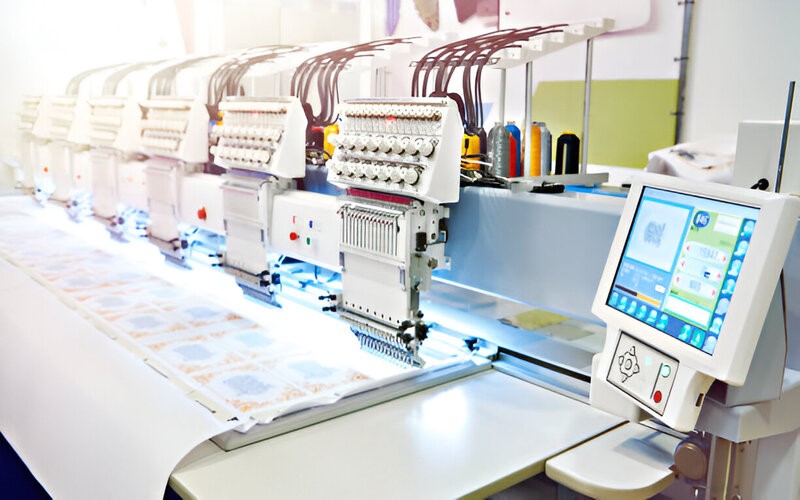7 Most Common Types Of Threads To Use In Machine Embroidery

- November 5, 2024
- By SEO
- 221
- Uncategorized
Have you been designing just so you can get all the items embroidered? One of the best ways to bring all your designs to life is through machine embroidery. It adds all the intricate designs with the help of different threads and gets the job done in a very clean way. So when creating custom logos, personal designs, monograms, one of the most important aspects is choosing the right thread.
With the right threads, you can get the best color vibrancy, durability and achieve high-quality results. Keep reading to learn more about the 7 most common types of threads for embroidery that you must consider if you are looking for quality embroidery digitizing service in USA.
The 7 Most Common Threads Used For Embroidery
1. Rayon Thread
Rayon is a popular thread for its soft sheen and vibrant colors. This thread is perfect for high-speed stitching providing a smooth finish in the end. It is perfect for items that require a delicate look, rayon thread is often used in designs on clothes and even linens. However, it is less durable than polyester so it’s perfect for items that won’t be washed or worn heavily
2. Polyester Thread
Polyester is known to be one of the most versatile and durable options. The thread has a strong structure and resistance to fading. This thread is perfect for hat machine embroidery and outdoor items due to its colorfast properties. It is one of the top choices for clothing items that need to be worn and washed regularly. Polyester is widely available and is less prone to breaking during embroidery, making the stitching smooth even on tougher fabrics.
3. Cotton Thread
Cotton thread has a matte finish and is different from the look that rayon and polyester provide. It is perfect for heirloom embroidery projects and applications that need natural fabrics. Although it isn’t as strong as synthetic threads, cotton threads texture is ideal for delicate designs and embroidery.
4. Metallic Thread
When you want to add a touch of sparkle to your embroidery, then metallic thread is the perfect way to go. It is available in silver, gold and other shades. It offers a fancy and reflective finish to your designs. However, metallic thread can be a little tricky to work with and is prone to breaking when handled properly. With the right needle and settings you can reduce the breakage of needle in machine embroidery.
5. Silk Thread
Silk thread is quite pricey especially for the vibrant colors and the luxurious texture it has. Although it isn’t used commonly, silk thread is ideal for high-end projects. Its strength and flexibility make it perfect for intricate details.
6. Wool Thread
Wool thread brings a dimensional look to your embroidery, making it very unique. It is usually used for crewel embroidery as wool is thicker than other threads and adds depth to designs. However, wool is not suitable for all fabric types and can be difficult to work with. Wool thread is most commonly used for decorative pieces rather than functional items.
7. Variegated Thread
Variegated threads contain different colors in one spool. This way you can create a multi-colored effect on your embroidery without having to change threads. This is excellent to add creative flair to your designs. These threads work with fabrics and hat machines and add dimension to your designs.
Conclusion
Choosing the right thread is quite essential to achieve the best results in machine embroidery. Whether you want unique finishes or the best colors, each thread brings something special to your designs. You can choose from the threads mentioned above and pair the right thread with the correct fabric to get the best results.
RELATED BLOGS

Diving into Precision and Craftsmanship with Embroidery Digitizing
Embroidery has been a part of several industries due to its timeless elegance. It transforms simple fabrics into intricate and delicate designs.

The Evolution of Embroidery design in the USA
Embroidery has been an important element of fabric for centuries. The reason is its designs and patterns that improve the overall look.

